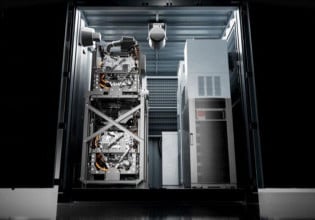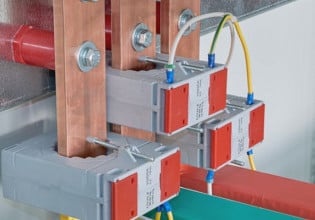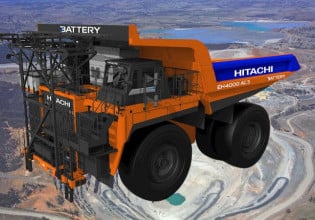Software Motor Company Raises $25 Million for Software-Defined Switched Reluctance Motors
Software Motor Company (SMC) has completed a $25 million financing round, including a first-time investment by BMW i Ventures. This fundraise will permit SMC to continue accelerating its software-defined switched reluctance motor product development efforts and achieve new milestones. SMC has now raised over $70M since 2014 to advance its mission to provide the world with optimal motor systems. This new investment round will enable SMC to further scale its business designing and deploying the world's most reliable, efficient, and intelligent motor system.
Electric motors are ubiquitous in any machine that moves, consuming over 45% of the world's electricity. SMC intends to raise its final round in summer 2020. Unlike conventional analog motors that constantly draw electricity, the SMC motor only uses electricity when it is needed to perform useful work. The SMC solution reduces energy costs by an order of magnitude while being incredibly easy to implement, saving time and money for owners and operators.
"We're incredibly excited to partner with BMW i Ventures, and we see this as more validation of the successes our customers have experienced, and the massive potential of our motor systems to transform how people and enterprises consume energy," said Ryan Morris, Executive Chairman of SMC.
Recommended for you: PWM Speed Control for Permanent Excited DC Motors
"Electric motors are a massive, $100B market, and they move our modern world, while consuming over 45% of the world's electricity. So investing in a company that can deliver huge electrical cost savings, while selling motor systems that are lower cost, more reliable, and made from more sustainable materials seems like a no-brainer," said Greg Smithies of BMW i Ventures.
To-date, SMC has primarily focused on transforming the HVAC industry, since the operation of buildings is responsible for 40% of global CO2 emissions. SMC is deploying its Smart Motor System with dozens of major retailers, restaurants, and commercial & industrial facilities, where their motor retrofits are driving average energy savings of 64% from their HVAC systems.
If the entire HVAC sector applied this technology and achieved similar performance, it would reduce annual global carbon emissions by 3.2 gigatons, which is the equivalent of 10% of all global emissions from fossil fuels. That would be like adding 10 new Amazon rainforests.
"HVAC retrofit was the first step to drive adoption of our technology. Businesses and governments are seeking new energy efficiencies to address the urgency of the climate crisis and their own environmental goals, as well as just spend less on energy and improve the bottom line. But the applications for our software-defined motor systems are ubiquitous, and we foresee adoption into electric vehicles as clear future markets for SMC," Morris said.
This latest round enables SMC to expand its product line to support a complete breadth of HVAC retrofit motors and bring to market its full-stack Building Operating System (BOS) platform to optimize energy and maintenance through intelligent automation.
"The energy savings from our current implementations have exceeded even our lofty expectations. These new investments will support expansion of motor capacities from 1hp all the way to 30hp, which will make the Smart Motor System compatible with the vast majority of HVAC applications around the world. This has the potential to make SMC an indelible component of all HVAC systems as global demand for air conditioning continues to grow under the simultaneous strains of hotter temperatures and rising energy efficiency standards," Morris said.
SMC has the ability to reduce the energy intensity of the vehicle manufacturing process by retrofitting its demanding HVAC systems. It's not unusual for large manufacturing facilities to consume tens-of-megawatts of power, and a significant portion of that is typically driven directly by HVAC.
"Efficiency and sustainability used to be ethical prerogatives, but now with technologies like SMC they simply make good business sense. The potential cost savings for large manufacturers and industrial companies are massive and cannot be ignored," Smithies said.
Furthermore, electric vehicles (EVs) require lower costs and longer ranges to reach ubiquity. SMC's technology enables lower cost motors as well as lowering the cost of the battery for comparable range, thanks to higher efficiency over a wide operating range.
Unlike virtually all EV motor designs today, SMC's software-defined switched reluctance motors do not rely on any permanent magnets or rare earth minerals, leading to a significant reduction in cost and ease of manufacture.
"SMC's unique architecture has the potential to improve the efficiency, cost, and safety of developing electric drivetrains, while reducing dependence on unsustainable rare earth minerals. That is a huge opportunity across all vehicle manufacturers," Smithies said.






